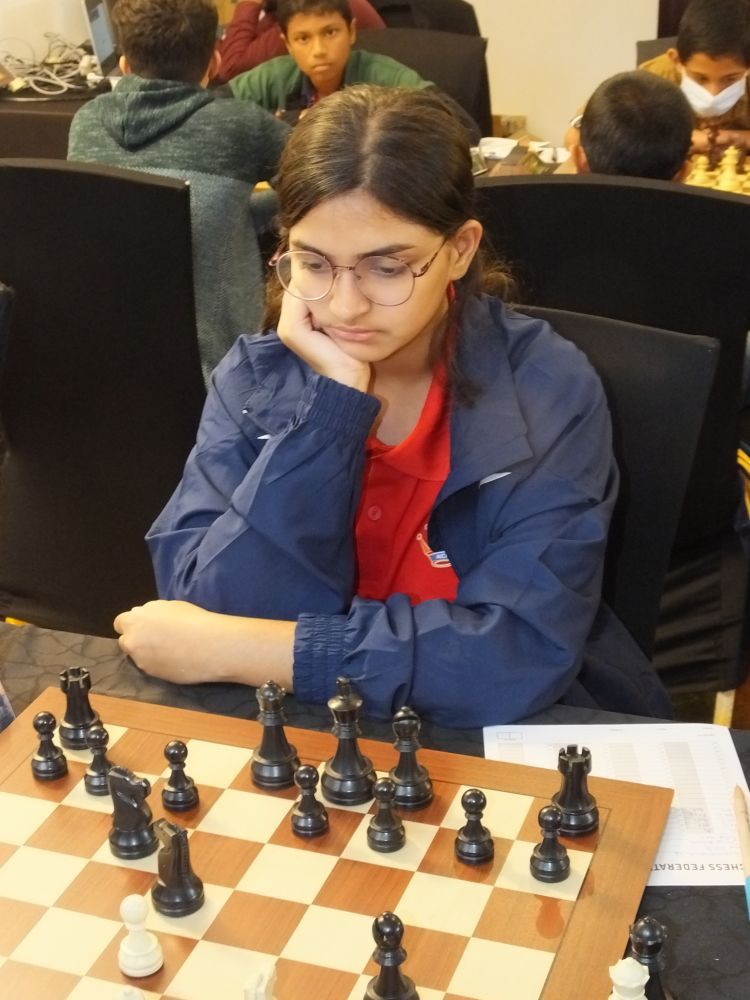How does ADHD shape thinking, focus and strategy?
Chess is a mental playground where focus, memory, creativity and decision making come alive. Every move is a reflection of a unique thought. But what happens when the way our brains are wired changes how we play? Falak, a 17-year-old international chess player, is exploring this very question. She is working on research about how ADHD, genetics, and environment influence the way chess players think, focus, and perform. You can be part of this exciting study! By completing a short survey, your experience could help bridge the gap between real-life chess performance and the science of the brain. Read the article to know more. Photo: Shutterstock
Does ADHD affect your game?
Chess has long been regarded as a mental test, but what if the structure of our brains actually alters how we play? That is the question fueling my ongoing research, mentored by a PhD candidate from the University of Alberta, where we are delving into how genetics and environment shape the behaviour and performance of players with ADHD.
The question that started it all

Most research to date has been on how chess helps individuals with ADHD, how it enhances memory, planning, and trains attention. Much less research, however, exists for the other half of that equation, how ADHD itself influences a player's cognitive and emotional functioning. In chess tournaments, these differences stand out. Some ADHD players are highly creative and perceptive, excelling at speed formats. Others struggle with time management, consistency, or impulsive decisions, even with years of training. At the same time, some (like me) are just living at the extremes of both sides!
I’ve always joked that my brain plays faster than my pieces, sometimes too fast for its own good. One moment I’m visualizing ten moves ahead, the next I’m wondering if I left my water bottle at the board. That unpredictability is both hilarious and confusing, and it’s what got me curious about ADHD and chess in the first place.
This is the inspiration behind our study. The goal is to understand the biology behind these patterns.
How are we studying it?
We are starting the project with a survey open to competitive chess players, both with and without ADHD, who currently play or have played regularly at the national or international level. Once we receive the responses, we will compare patterns between the two groups and link them to existing neuroscience research through a literature review.
At a biological level, our focus is on the dopamine system and the prefrontal cortex, which play major roles in attention, motivation, and impulse control. Differences in how these brain systems function, sometimes due to genetic variations, can influence how players focus, evaluate risks, or manage time pressure.
But genes alone do not tell the full story. These biological tendencies can be either enhanced or moderated by environmental factors such as tournament pressure, competition exposure at an early age, quality of sleep, and support from family or a coach. It is this interaction between nature and nurture that makes the research so interesting.

Why it matters
In addition to scientific interest, this research could have a real impact on how we train and guide players. If we understand how ADHD-like qualities such as hyperfocus or impulsivity appear in chess, coaches and players can tailor training approaches around them. In the long run, this type of insight can also assist in the development of more diverse and science-based coaching systems. Rather than considering neurodivergent characteristics as deficits, we can identify them as cognitive style differences, each with its own set of strengths and difficulties.
Moving forward
In India, the conversation around mental health and neurodivergence is slowly gaining momentum, with more people choosing openness over silence, and that’s a beautiful change.
The brain isn't something abstract; it fuels every decision, every computation, and every ounce of creativity that occurs on the 64 squares. Chess is a lesson in how each move, no matter how small, will shift the whole outcome. I think the same is true of comprehending the brain. Each new discovery brings us closer to seeing how beautifully complex and deeply human our thinking really is.
Participate in the study
If you are a competitive chess player, with or without ADHD, you can participate in this research and support us by completing this survey. Your input will help bridge actual chess experiences with biological science and get us closer to learning how the mind plays the game. Also, considering we would likely receive very few responses from players with ADHD compared to those who don't, I would really appreciate it if you could share the survey with someone who has ADHD and also plays chess.
Participate in the study
About the author

Falak Naik is a 17-year-old international chess player from India who has been competing for almost a decade. Deeply passionate about both chess and neuroscience, she is currently conducting a research project under the mentorship of a PhD candidate, exploring how genetics and environment influence the behavior and performance of chess players with ADHD. Beyond the chessboard, she is an advocate for mental health awareness and aims to make conversations around neurodivergence more open and empowering, because understanding how our brains work should feel exciting and empowering, not scary or embarrassing.

